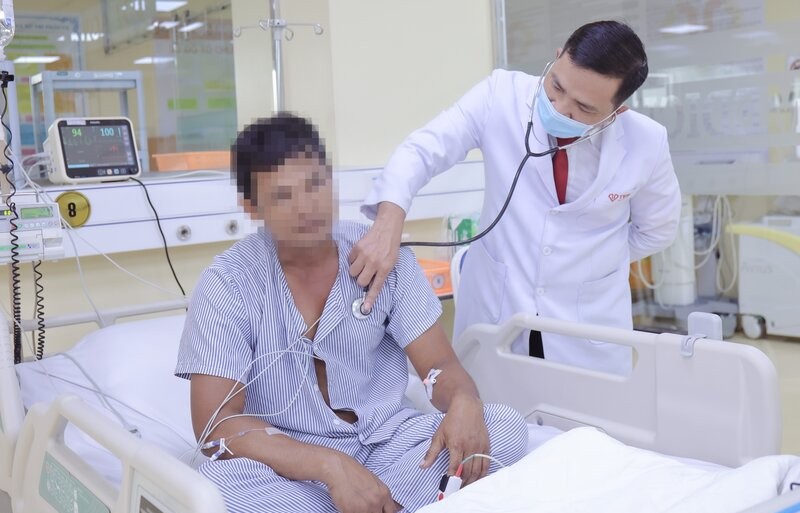On December 31, Dr. Nguyen Hoang Duyen, Head of the Emergency Resuscitation Department of Thanh Vu Medic Bac Lieu General Hospital, said: The patient's health is now stable, he no longer feels tired or has difficulty breathing, and the pain and swelling at the sting sites have significantly reduced. Doctors expect the patient to be discharged in the next few days.
Previously, at 4:00 p.m. on December 29, the Emergency Department of Thanh Vu Medic Bac Lieu General Hospital received a male patient, H.N (34 years old, residing in Vinh Trach commune, Bac Lieu province), who was admitted with difficulty breathing, high blood pressure, and numerous bee stings on his head, face, shoulders, and back. The sting sites were swollen, red, and painful.

According to the patient's family, while driving the excavator, the patient accidentally touched a wasp nest and was stung in many different places on his body.
The patient was quickly given emergency care, intensive resuscitation, anti-anaphylactic shock treatment and necessary tests. The patient was then consulted and transferred to the Intensive Care Unit for further treatment.
Recognizing that this was a severe case of bee stings (more than 50 stings) causing a grade 2 anaphylactic reaction and blood clotting disorder, with a high risk of death, doctors at the Intensive Care Unit (ICU) quickly coordinated many measures including optimal medical treatment and continuous blood filtration.
Doctor Nguyen Hoang Duyen - Head of the Department of Emergency Resuscitation, Thanh Vu Medic Bac Lieu General Hospital - recommends: To limit bee stings, it is necessary to avoid areas with bees, do not disturb, catch bees, smash beehives...; Do not let trees grow densely around the house, making it easy for bees to come and make nests; Regularly clean and clear bushes around the house.
When discovering a beehive in a residential area or an area with a lot of people passing by, it is necessary to destroy the beehive properly. Equip yourself with basic knowledge to give first aid to people stung by bees. If you are stung by a large number of poisonous bees or have serious symptoms, you need to go to a medical facility as soon as possible.










